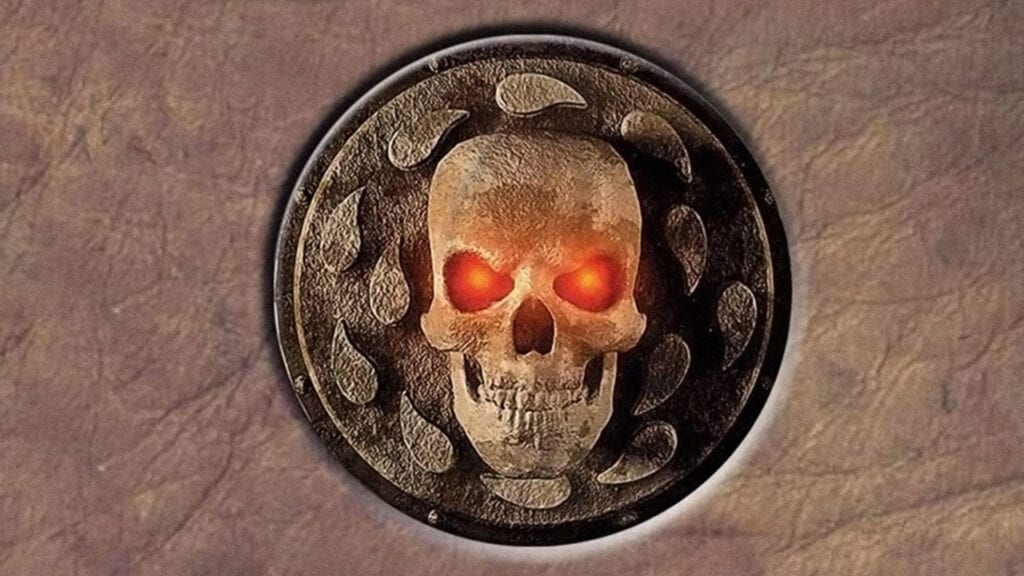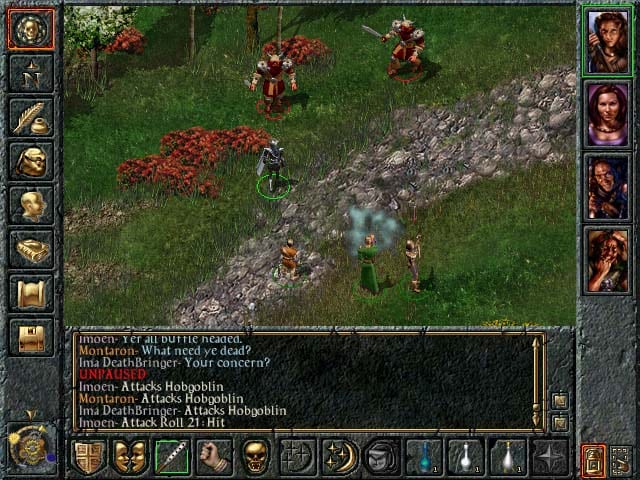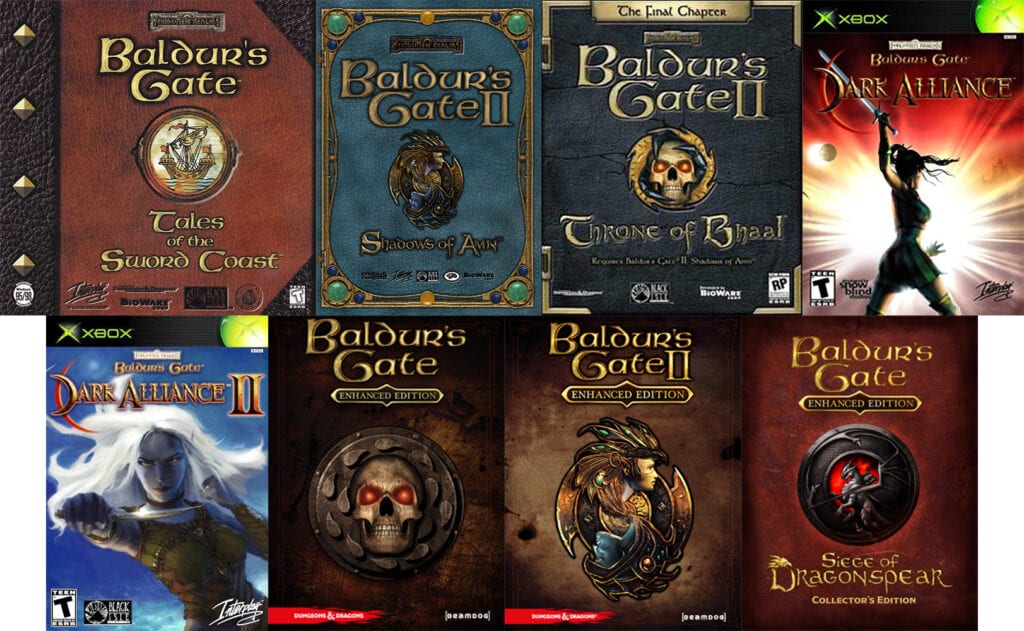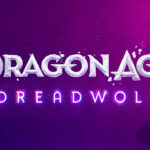Throwback Thursday: Baldur’s Gate – BioWare’s First RPG Rolls The Die

On December 21, 1998, Baldur’s Gate was released for the PC. Based on the high fantasy role playing of Dungeons & Dragons, the video game introduced a faithful real-time recreation of the popular tabletop experience. A hit with fans and critics alike, Baldur’s Gate‘s morality-based gameplay brought new life into the RPG genre and set the tone for developer BioWare’s bright future ahead.
Background
In the mid-90s, Canadian game developer BioWare was just starting out, having been founded by avid D&D fans / practicing physicians with a predictable obsession with gaming. Fascinated with putting pen-and-paper role-playing in video game form, the studio presented Fallout publisher Interplay with a demonstration of their ideas titled Battleground: Infinity. Interplay saw great potential in the “Infinity Engine”, seeing fit to give BioWare a shot at creating a fresh title for the Dungeons & Dragons licence.
At the time, the gaming climate saw RPGs as a quickly-fading fad, a thought tied to a famously-long string of flops that failed to innovate the genre. The project that became Baldur’s Gate went against the turn-based trend of the time, featuring a pausable real-time system not unlike the RTS genre. BioWare has attributed the steadfast passion behind the game to a healthy creative atmosphere during development. It’s widely considered that the successful release of Baldur’s Gate contributed to a positive change in perception of computer RPGs.
Gameplay
As either male or female, the adventure begins when race, class, and alignment are identified, providing the protagonist with a multitude of skills and backstories. Players inhabit the role of a young ward traversing, battling enemies, and completing quests in the Forgotten Realms of Dungeons & Dragons. With the aid of up to five potential companions, the main quest to resolve a simple iron shortage soon uncovers a greater web of conspiracy orchestrated by a shady organization.
Baldur’s Gate is played from a top-down isometric perspective, tasking new players to complete quests, collect items, and explore the pre-rendered locales in order to level up. Each power increase allows the player to progress further in the game, but as with typical BioWare titles, no aspect has a bigger impact than conversation. Dialogue initiated with NPCs and party members is dictated by a response-based reputation system, and each interaction has the potential to sway situations based on the player’s aligned morality.
Legacy
Baldur’s Gate saw several follow-up installments over the years, divided into two distinct series. The first expansion, Tales of the Sword Coast, along with the sequel additions of Shadows of Amn and Throne of Bhaal continue the ward’s story dubbed as the Bhaalspawn Saga. A console spin-off series titled Baldur’s Gate: Dark Alliance released for PlayStation 2 and Xbox in 2001, with a sole sequel happening in 2004. Enhanced Editions of the first two titles saw the original games resurge in recent years, leading to the all-new expansion Siege of Dragonspear to debut as recently as 2016.
What’s your opinion of Baldur’s Gate? Let us know in the comments below and be sure to follow Don’t Feed the Gamers on Twitter to be informed of the latest gaming and entertainment news 24 hours a day! Also, be on the lookout for the next Throwback Thursday where we’ll highlight yet another title from gaming past. For entries from previous weeks, check out these next few links below:

Eric Hall2712 Posts
Phone-browsing Wikipedia in one hand and clutching his trusty controller in the other, the legendary Eric Hall spreads his wealth of knowledge as a writer for Don't Feed the Gamers. Be sure to catch his biweekly "Throwback Thursday" segment for a nostalgic look at trivia from the past.













